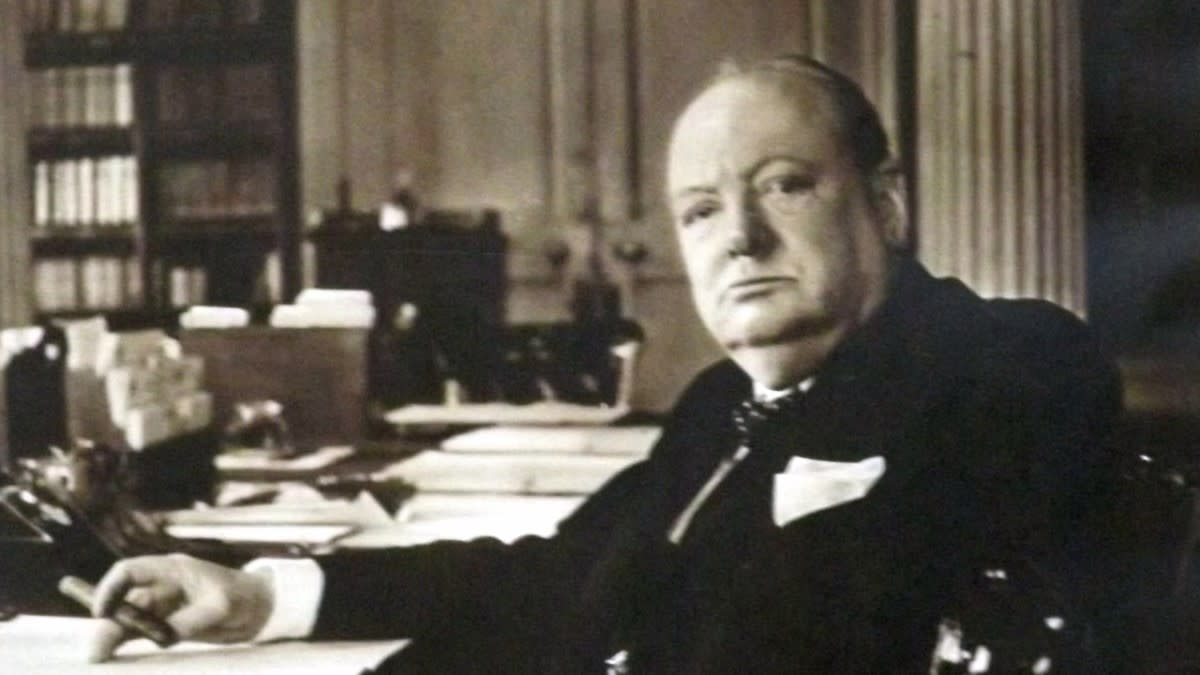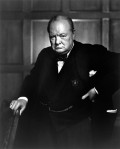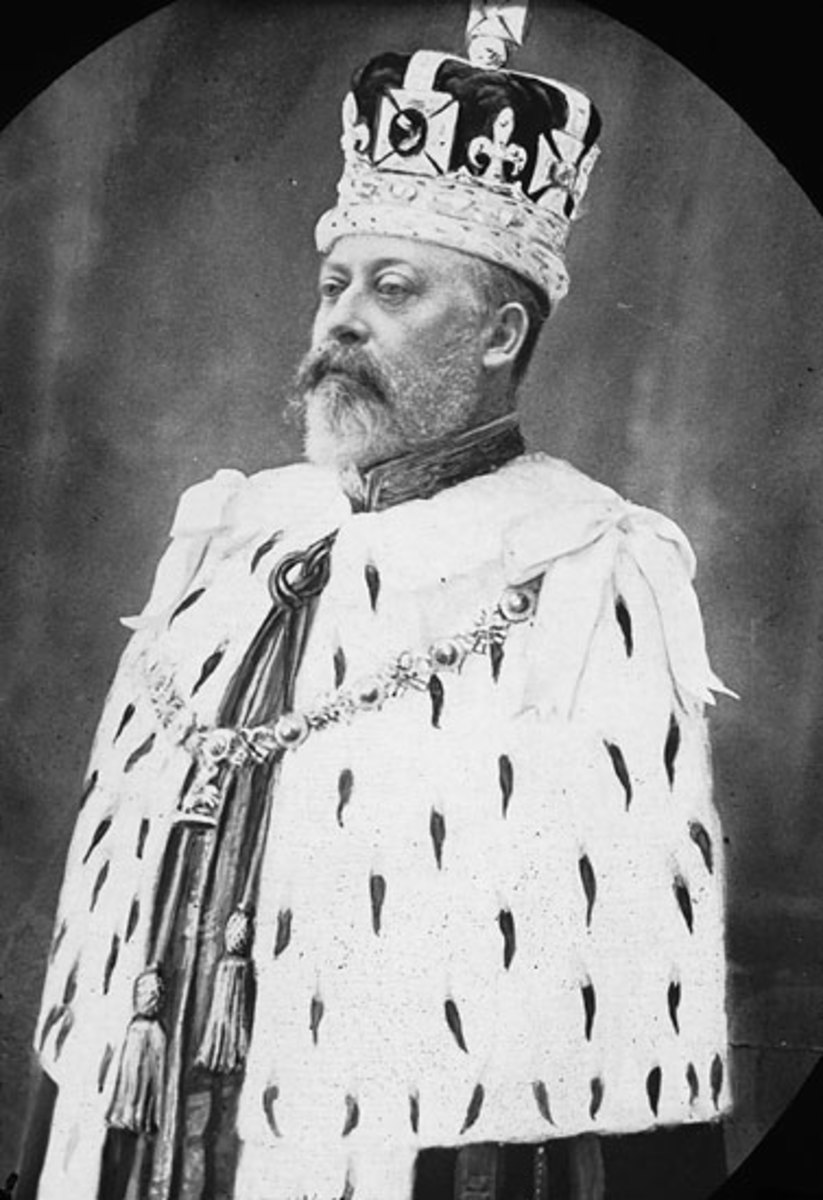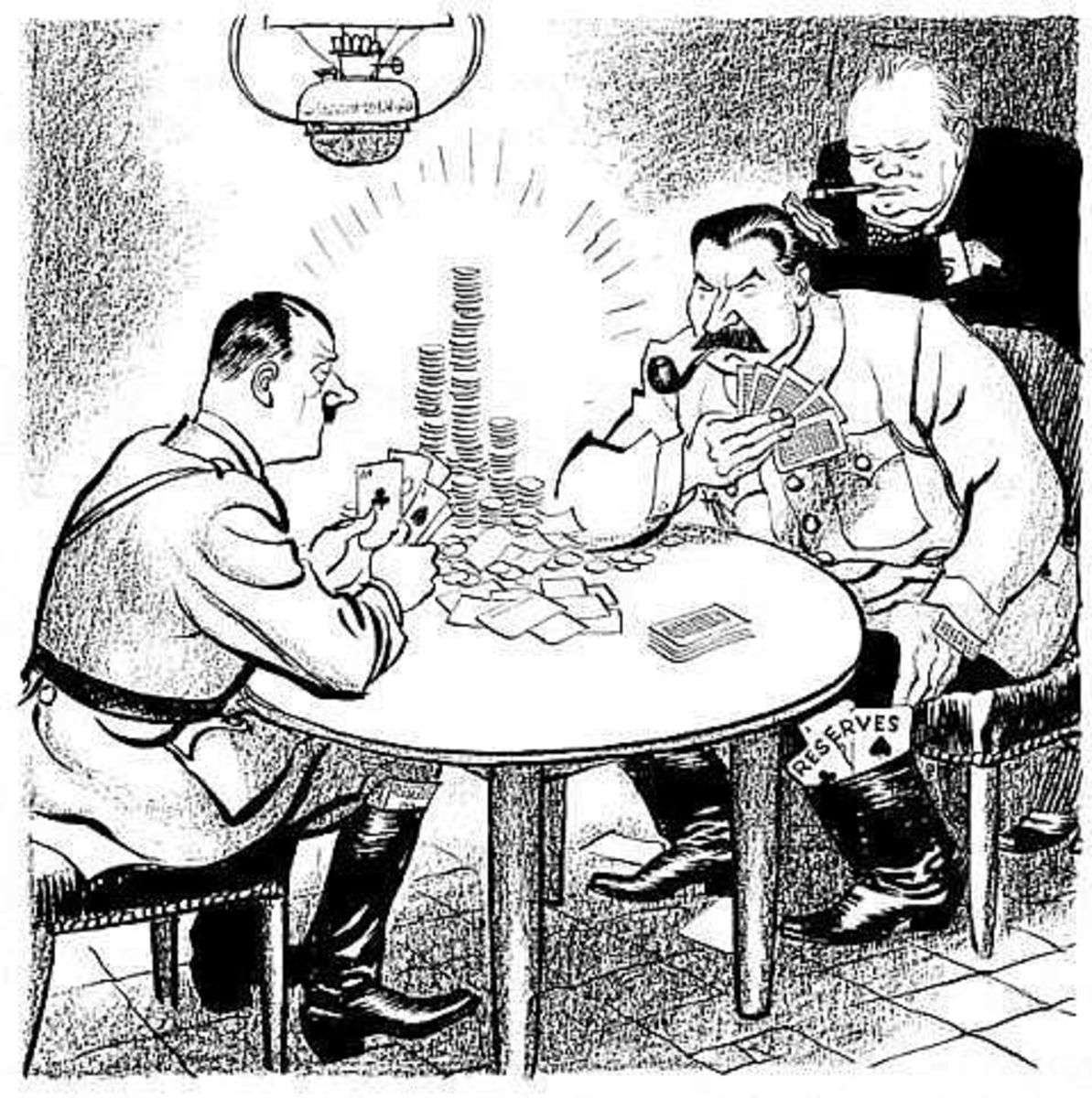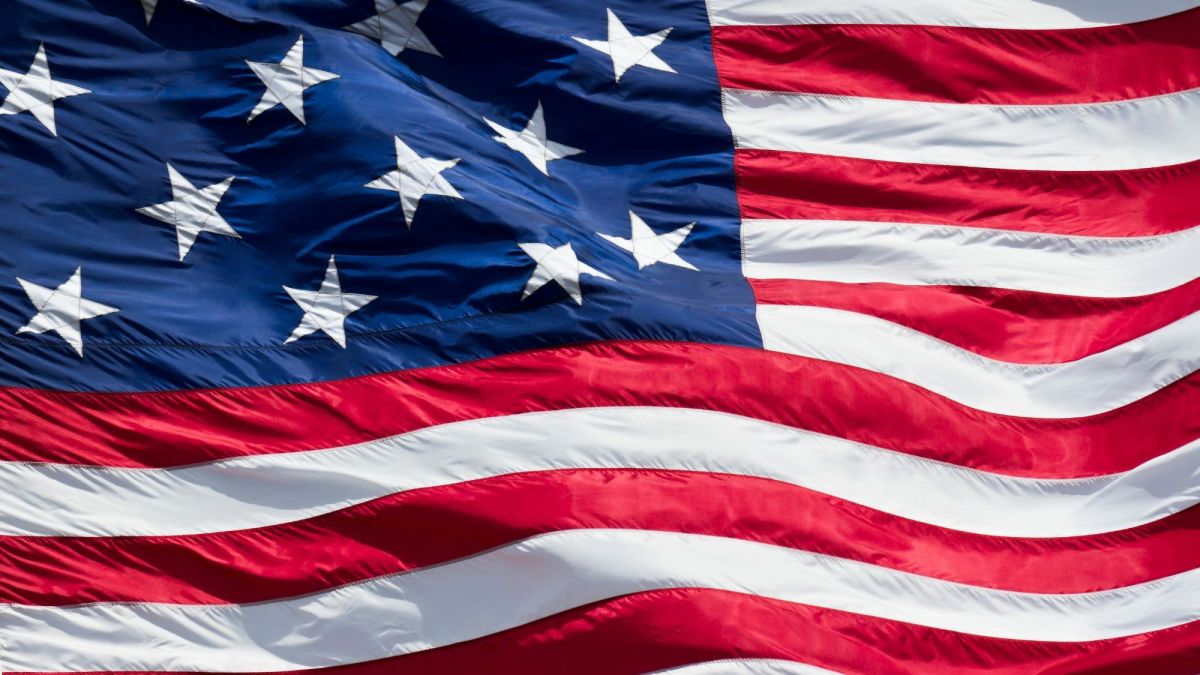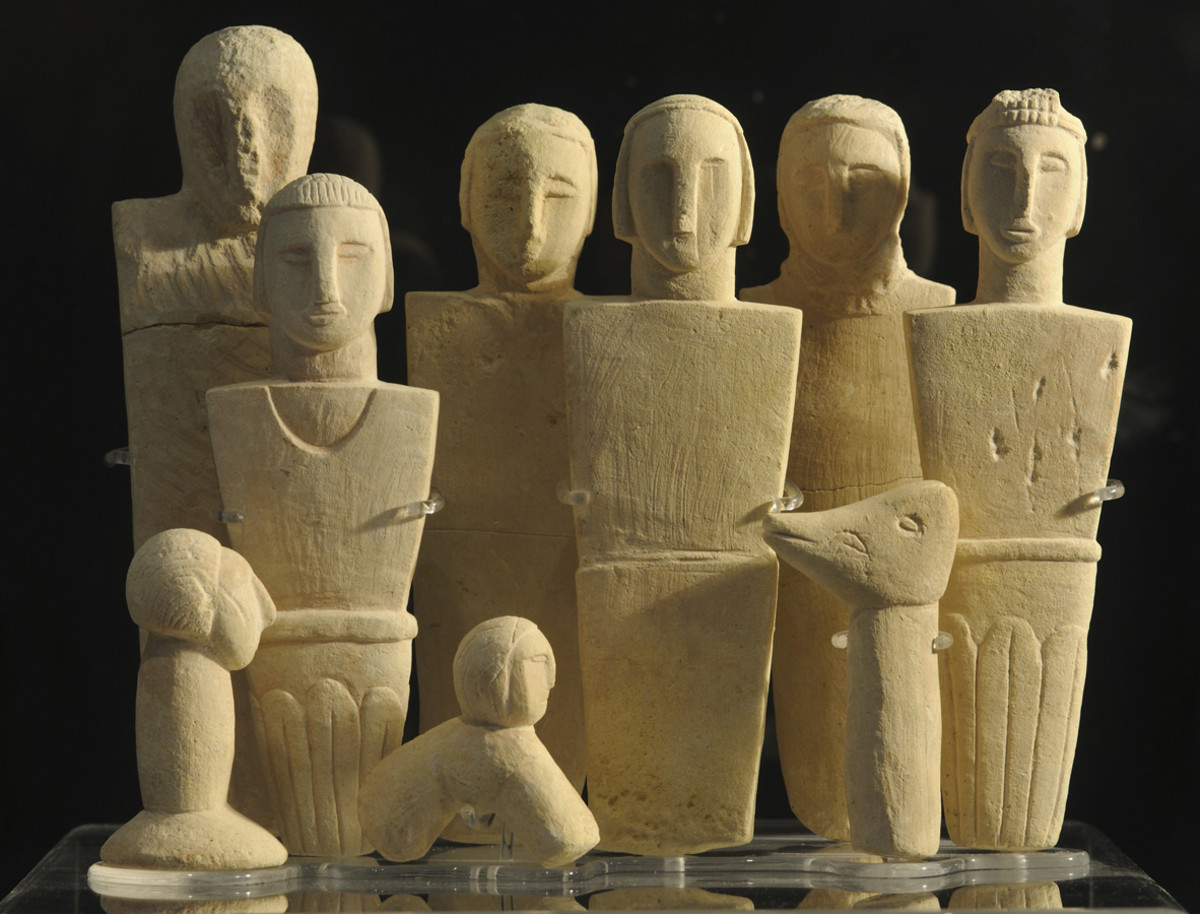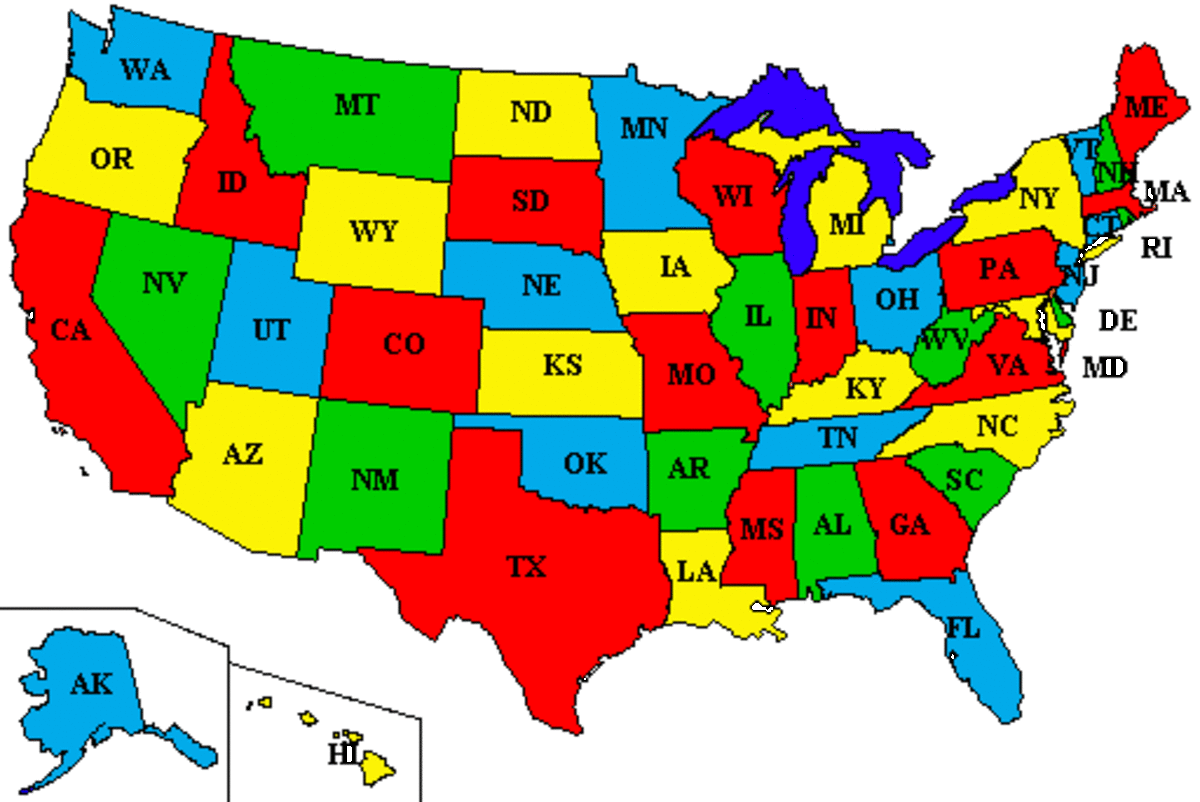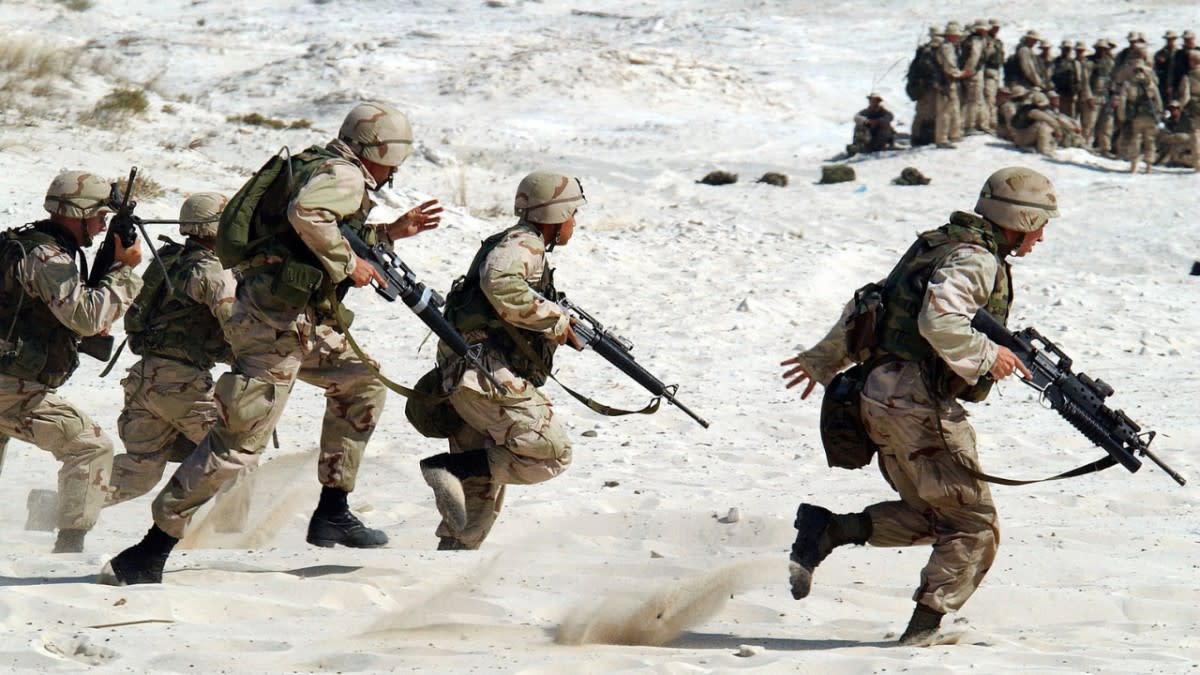Greater and Lesser Known Speeches, Quotes, and Anecdotes About Winston Churchill
Churchill late December 1941
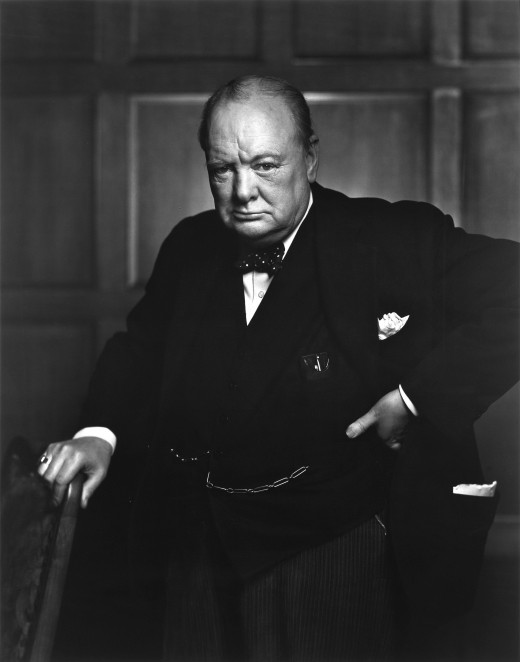
Winston Churchill
I just read Martin Gilbert's "Churchill; A Life." It's a one volume biography on Winston Churchill, hardback, 959 pages. It's heavy and stout enough to be used for weightlifting or maybe a light anchor. "Churchill; A Life" is a broad complete look at Churchill from birth to death, yet the book features detailed and in-depth stories and views of his life and times. Gilbert vigorously quotes Churchill's own words which helped me hear and know the man better. This article highlights various famous and less known quotes, speeches, and facts on Churchill. All the numbers after the speech or quote are page references to Gilbert's "Churchill."
Nazi Nuremberg Rally in 1930's
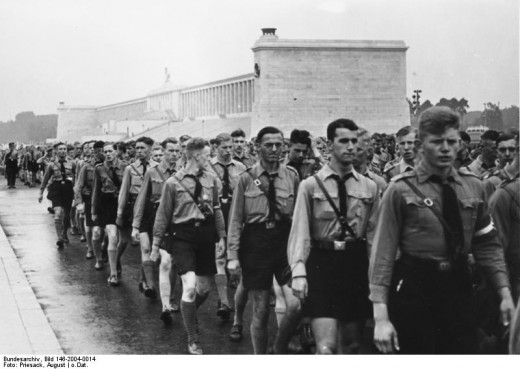
Voice in the wilderness against the Nazis
Churchill was mocked, laughed at, and scorned through the 1930s as he repeatedly urged Great Britain to re-arm and deal with Hitler before war became inevitable. But many high-profile British saw no threat and some even admired Hitler. On May 4, 1935 Lord Londonderry wrote to Churchill, "I should like to get our of your mind what appears to be a strong anti-German obsession." Churchill's reply to Londonderry shows a grasp of long-term British foreign policy and the true assessment of who the Nazi's were. Churchill replied that Londonderry was "mistaken in supposing that I have an anti-German obsession...British policy for four hundred years has been to oppose the strongest power in Europe by weaving together a combination of other countries strong enough to face the bully...It is thus through the centuries we have kept our liberties and maintained our life and power. I hope you (Londonderry) will not become too prominently identified with the pro-German view. If I read the future aright Hitler's government will confront Europe with a series of outrageous events and ever-growing military might. It is events which will show our dangers, though for some the lesson will come too late." (555)
In Munich in late 1938, Chamberlain and the allies capitulated to Hitler and allowed him to enslave Czechoslovakia, rather than risk war with Germany. When Chamberlain returned he was meet in England by cheering crowds and applause. Yet Churchill wasn't afraid to tell the Commons what he saw as the truth, "They (the British people) should know that there has been gross neglect and deficiency in our defenses; they should know that we have sustained a defeat without a war, the consequences of which will travel far with us along our road; they should know that we have passed an awful milestone in our history, when the whole equilibrium of Europe has been deranged, and that the terrible words have for the time being been pronounced against the Western democracies: 'Thou are weighed in the balances and found wanting.' And do not suppose that this is the end. This is only the beginning of the reckoning. This is only the first sip, the first foretaste of a bitter cup which will be proffered to us year by year unless by a supreme recovery of moral health and martial vigor, we arise again and take our stand for freedom as in the olden time." (600} Churchill was more concerned the British people knew the truth of what lay before them and wasn't afraid of who he might offend or how unpopular his words might make him.
King Edward VIII
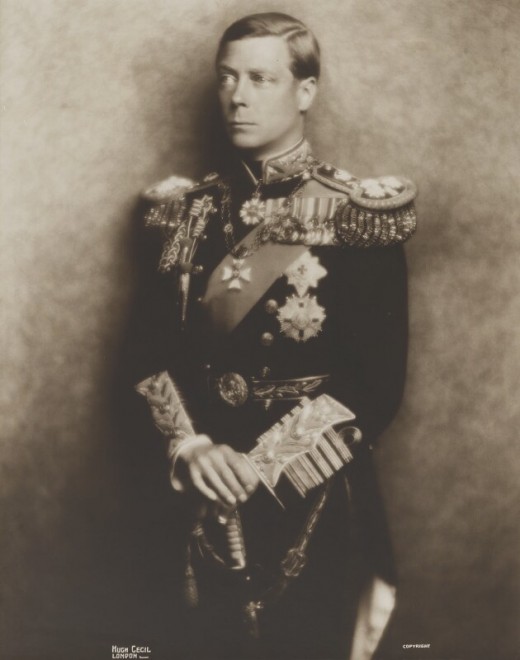
The Abdication of King Edward and Churchill's "guidance of my heart"
One of the many fascinating episodes where Winston Churchill found himself alone and vastly outnumbered was the abdication crisis with King Edward in 1936. Prime Minister Baldwin and his cabinet gave the King the ultimatum of either giving up his affair with an American named Wallis Simpson. Simpson was finalizing her second divorce at the moment in December 1936. Churchill without being asked by anyone (not untypical), intervened seeking to head off the crisis. Churchill met with the King and with members of his party and asked them for more time, Churchill believed some resolution could be reached to keep the King on the throne. December 7 Churchill rose in parliament to ask his peers to not be hasty and to give the King time but was drowned out by shouts, cries, and jeers. Finally he gave up the floor, and said to the Prime Minister Baldwin while walking out, "You won't be satisfied until you've broken him will you?" (569) Churchill took his unpopular stand with the King at the very moment when his parliamentary peers were finally beginning to listen to his alarms about Hitler and the need for Great Britain to re-arm.
But three days later December 10 Edward the VIII chose Wallis Simpson rather than be the King of England. Churchill rose to speak in Parliament after the King's abdication. A friend said, "Winston rose in face of a hostile House and in an admirably phrased little speech executed a strategical retreat." (570) Churchill said, "What has been done, or left undone, belongs to history, and to history, as far as I am concerned, it shall be left." Churchill wasn't afraid to praise the former King saying Edward would be remembered "in the homes of his poorer subjects," and some members cheered. He wrapped up his short speech by pointing them all toward the fascists, "Dangers gather upon our path. We cannot afford--we have no right--to look back. We must look forward." (570)
Churchill followed his heart and what he believed to be right concerning King Edward rather than opinion polls. In a letter to a friend on New Years Day 1937 Churchill wrote regarding the King's abdication, "I do not feel that my own political position is much affected by the line I took; but even if it were, I should not wish to have acted otherwise. As you know in politics I always prefer to accept the guidance of my heart to calculations of public feeling." (570)
Churchill making 'V' for victory sign in WWII
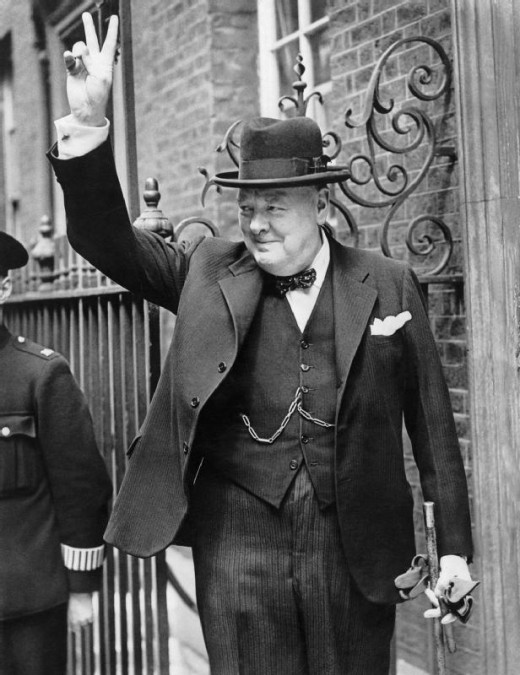
Churchill walking through the ruins of Coventry Cathedral 1942
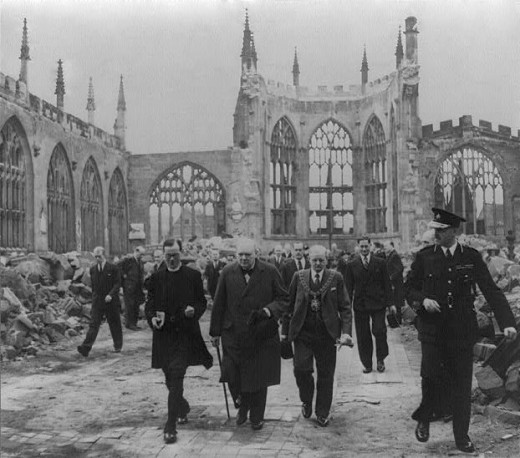
War P.M. Epic Speeches
May 13, 1940, shortly after Churchill became P.M. and had formed his cabinet he told his ministers "I have nothing to offer but blood, toil, tears, and sweat." This was his finest hour and Churchill firmly believed his entire life had been preparation for this moment in world history where the fate of the free world hung in the balance. Great Britain would soon stand alone against the Axis powers.
A few hours later on this same day Churchill addressed the commons, "You ask, what is our policy? I will say: it is to wage war, by sea, land and air, with all our might and with all the strength that God can give us; to wage war against a monstrous tyranny, never surpassed in the dark, lamentable catalogue of human crime. That is our policy. You ask, what is our aim? I can answer in one word; victory, victory at all costs, victory in spite of all terror, victory, however long and hard the road may be; for without victory there is no survival. Let that be realized; no survival for the British Empire, no survival for all that the British Empire has stood for, no survival for the urge and impulse of the ages, that mankind will move forward toward its goal. I take up my task with buoyancy and hope. I feel sure that our cause will not be suffered to fail among men. At this time I feel entitled to claim the aid of all, and I say, 'Come then, let us go forward together with our united strength.' (646)
Perhaps the most famous war speech of all came after the miracle of Dunkirk when Churchill addressed the commons on June 4, 1940. A Labour M.P. named Josiah Wedgwood afterwards said, "That was worth 1,000 guns and the speeches of 1,000 years." Churchill stood and declared...
"Even though large tracts of Europe and many old and famous states have fallen or may fall into the grip of the Gestapo and all the odious apparatus of Nazi rule, we shall not flag or fail. We shall go on to the end. We shall fight in France, we shall fight on the seas and oceans, we shall fight with growing confidence and growing strength in the air, we shall defend our island, whatever the cost may be. We shall fight on the beaches, we shall fight on the landing grounds, we shall fight in the fields and in the streets, we shall fight in the hills; we shall never surrender. And even if, which I do not for a moment believe, this island or a large part of it were subjugated and starving, then our Empire beyond the seas, armed and guarded by the British Fleet, would carry on the struggle, until, in God's good time; the New World, with all it's power and might, steps forth to the rescue and the liberation of the Old." (656)
Later Churchill privately remarked, with characteristic candor, hope, and confidence, "We are going through very hard times and I expect worse to come: but I feel quite sure better days will come: though whether we shall live to see them is more doubtful...I do not feel the burden weigh too heavily, but I cannot say that I have enjoyed Prime Minister very much so far." (656) (June 1940)
Churchill with War Cabinet on May 7, 1945
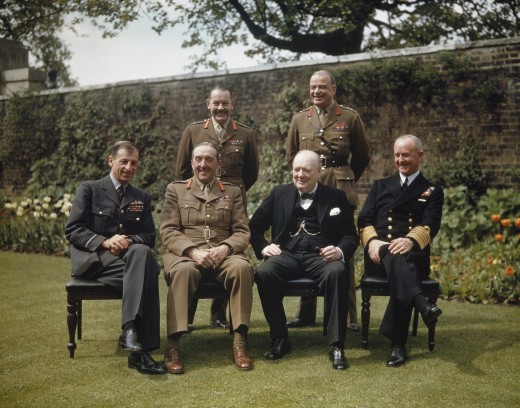
Secretaries
Churchill usually had more than one secretary with him at all times whether for government work or when he was writing historical works on the Duke of Marlborough or the Great War or his memoirs of World War II. Grace Hamblin one of his secretaries had this to say of Churchill, "There is no doubt he was a very hard taskmaster. He drove us. And he rarely gave praise. But he had subtle ways of showing his approval, and we would not have had it otherwise. He worked so hard himself and was so absolutely dedicated to the task in hand that he expected the same from others. He accepted it as his right. And in time we who worked for him realized that in full return for the stress and strain, we had the rare privilege of getting to know the beauty of his dynamic, but gentle character." (579)
Another secretary Marian Holmes remembered Churchill on H.M.S. Orion. Though weary after a long day Churchill went to wardroom, Holmes recounts, "he stood at the bar and had a drink with al the officers' crowding round him. He is simply wonderful at these impromptu chats." Churchill on leaving the room said, "I hope you've looked after my two young ladies. They go everywhere with me and don't mind putting up with my bad temper." This is a perfect picture of Churchill.
Churchill, A Life by Martin Gilbert
Winston's beloved wife Clementine (1915)
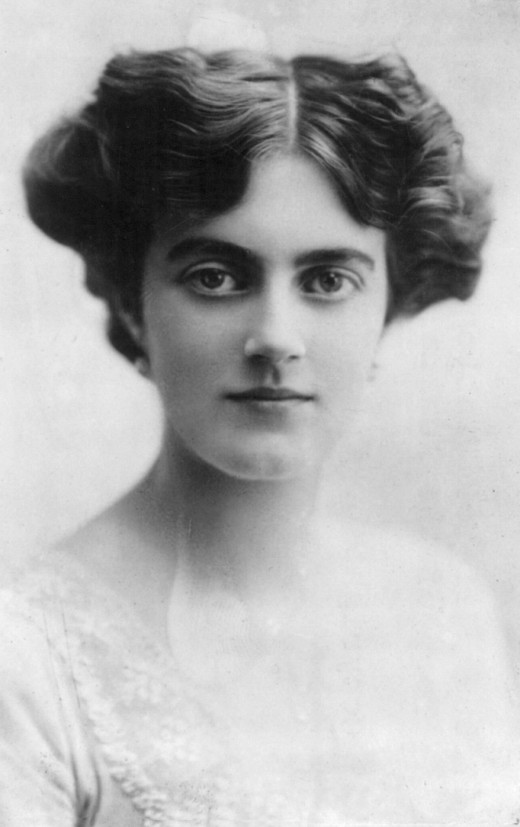
Compassion, peace, and humanity
600 Tibetans in Guru in the early 1900s were killed without the loss of a single British soldier. A new Maxim machine gun was used. The 'victory' was greeted "with a howl of ferocious triumph by Press & Party." Churchill wrote to a friend his feelings on this 'victory' of British arms, "Surely it is very wicked to do such things. Absolute contempt for the rights of others must be wrong. Are there any people in the world so mean-spirited as not to resist under the circumstances to which these poor Tibetans have been subjected. It has been their land for centuries, and although they are only Asiatic, liberty & home mean something to them." Certainly you see a modern racism when Churchill says "although they are only Asiatic" yet Churchill was way ahead of his time in understanding the desire and right to freedom for all peoples, including Tibetans.
Though Churchill was indomitable and pounding in war throughout his life he was always gracious and conciliatory to the defeated, often at odds with the public. He proposed graciousness to the Boers and later the Germans.
At the Teheran conference in 1943 the subject of what to do with Germany after the war came up. Stalin put forth the idea of taking 50,000 Germans and having them shot without a trial as a means of punishing Germany. 50,000! Churchill was so offended he got up and walked out. When they re-convened later it was decided that a list of war criminals would be drawn up. If captured, the war criminals would stand trial in court. And only then be executed if found guilty. Churchill wouldn't allow for random Germans to pay for the sins of the nation.,
In a letter to his wife Clementine, February 1,1945, "I am free to confess to you that my heart is saddened by the tales of the masses of German women and children flying along the roads everywhere in 40 mile long columns to the West before the advancing armies. I am clearly convinced that they deserve it; but that not remove it from one's gaze. The misery of the whole world appeals me, and I fear increasingly that new struggles may arise out of those we are successfully ending." (816)
Churchill foresaw the fall of an "Iron Curtain" while World War II raged on. He did his best to limit Soviet influence and occupation over eastern Europe. And Churchill always believed he had much more influence on Stalin than he actually did. But yet the ever-optimistic Churchill also believed if he could just be face to face with the Russians he could lessen or end the Cold War. Churchill saw a new opportunity for the west to reach out to the Soviets with the passing of Stalin.
On March 5, 1953 Stalin died. Churchill, as P.M., sent of message of sympathy to the Russians. Churchill hoped to start a new relationship with the next Soviet leader as soon as possible, even going alone to Moscow to meet with the Russians. Churchill messaged the current U.S. President Eisenhower, "I have a feeling that we might both of us together or separately be called to account if no attempt was made to turn over a leaf, so that a new page could be started, with something more coherent on it than a series of casual and dangerous incidents at the many points of contact between the divisions of the world." (910) This is classic Churchill, seeing himself rightly in the scope of world history and wanting to be forever known as a man who built bridges and brought peace.
Churchill with Roosevelt and Stalin at Teheran Conference 1943
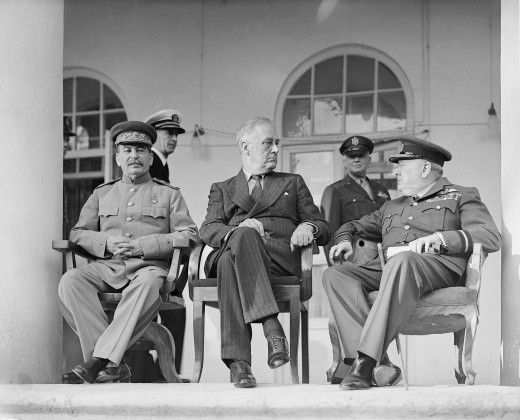
A commitment and love for justice and freedom
In the early 1900s as Churchill stood to publicly oppose the Government's Aliens Bill, whatever the cost to his own popularity. He again would not stand for a law which was against freedom and unjust. The Aliens bill was meant to greatly reduce the number of Jewish immigrants coming to England from Russia. Churchill wrote a public letter announcing his active opposition to the bill. Churchill wondered why Britain would leave behind "the old tolerant and generous practice of free entry and asylum to which this country has so long adhered and from which it has so greatly gained.' He was against such law being offered to "an intolerant or anti-Semitic" Home Secretary in the current administration. Churchill cared about the effect of an Aliens Bill on the "simple immigrant, the political refugee, the helpless and the poor" who would fail to gain "the smallest right of appeal to the broad justice of the English courts." (165)
In 1910 Churchill was Home Secretary for the United Kingdom. He took a tour of Pentonville prison and recommended the King issue a pardon to seven young offenders for petty crimes they had committed and long sentences the seven had received. Churchill thought the sentences were extremely unfair and a double standard for the poor Englishman. Churchill was publicly criticized in the Commons for asking clemency on behalf of the young men. Responding to his critical peers with humor and heart Churchill said, "I was very glad of the opportunity of recommending the use of the prerogative in these cases, because I wanted to draw the attention of the country, by means of cases perfectly legitimate in themselves, to the evil by which 7,000 lads of the poorer classes are sent to gaol every year for offenses for which, if the noble Lord (Lord Winterton who had criticized him) had committed them at College, he would not have been subjected to the slightest degree of inconvenience." Churchill, born to wealth and status, always had a heart for the British working man and woman.
Churchill on Middle East policy and dinner with the Saudi King
Churchill was a fervent advocate for a Jewish homeland in Palestine and equally ana advocate for peace in the Middle East between the Arab states and the Jews. Churchill, following Yalta, held a banquet for the Saudi King, King Ibn Saud. Asking for the King's help "to promote a definite and lasting settlement between the Jews and Arabs." (February 17, 1945) Churchill hoped for a Middle East Federation in which a Jewish state would be an integral but independent part.
In preparation for this banquet Churchill was told there could be no drinking or smoking in the presence of the Saudi King. Churchill wasn't fazed at all. In his memoir notes he wrote, "I was the host and I said (to the Saudi King) that if it was his religion that made him say such things, my religion prescribed as an absolute sacred ritual smoking cigars and drinking alcohol before, after, and if need be during, all meals and the intervals between them. Complete surrender." The King acceded to Churchill so much so that King served his own dinner drink and Winston wrote, "We were given something to drink. (by the Saudis) Did not know what it was. It seemed a nasty cocktail. Found out afterwards it was an aphrodisiac." (825)
Churchill's character revealed when voted out as P.M., July 1945
I am always intrigued by how a man or woman responds to an unexpected and crushing blow and how their character is revealed. In July 1945 Churchill was leading the British negotiating team with Stalin and Truman at Potsdam. The world lay at the feet of these victors as they planned the world's future. Clement Attlee, the Labour representative, was also in attendance. Simultaneous to Potsdam was the national election in the U.K. between the Labour and Conservative party. Churchill had led Great Britain through perhaps her darkest hour the last four plus years. His stalwart leadership led Great Britain and the free world to victory. Churchill and Attlee had to leave the Potsdam conference to go home for the national election. Stalin and Truman assumed Churchill would be back within a couple of days. But Churchill would not be returning. After all the years of war and peace in Europe the Labour Party won the election.
Captain Pim, his assistant, went to tell Churchill the bad news of the lost election. Churchill had won his own seat in his home district but the Conservatives had been beaten by Labour. Pim recalls the moment, "The Prime Minister was in his bath and certainly appeared surprised, if not shocked. He asked me to get him a towel and in a few minutes...he was in his chair in the Map Room, where he remained all day." David Margetson was at lunch with Churchill on that devastating day, he wrote to Churchill some time later, "I shall never forget the courage and forbearance you showed at that most unhappy luncheon after defeat was known. It was a terrific example of how to take it on the chin without flinching."
A friend of Churchill's, Lord Moran, spoke of the ingratitude of the British people after all Churchill had done and sacrificed for the people. But Churchill replied concerning the British people, "I wouldn't call it that. They have had a very hard time."
Churchill wrote out a memo to be broadcast on public radio expressing his support for the Labour Party which had ushered him out of power, "Immense responsibilities abroad and at home fall upon the new government, and we must all hope they will be successful in bearing them." (855) Churchill showed his class, character, and loyalty to the British people.
The next day, about to have his bath, he called for Captain Pim. Tim relates their conversation and the scene, "He turned quite grey in his bath. I thought he would faint. Then he (Churchill) turned to me and said, "They are perfectly entitled to vote as they please. This is democracy. This is what we've been fighting for." (856) What a perspective! Churchill understandably could have been bitter, resentful, and looked at the Conservative defeat as his greatest humiliation but instead he saw his own defeat as a tribute to all his hard work in victory. Over the whole book as I read of Churchill, I think how he responded to his stunning election defeat may have been his own "Finest Hour."
Churchill wrote to a friend the next day after his defeat, July 28, "I must confess I found the event of Thursday rather odd and queer, especially after the wonderful welcomes I had from all classes. ...My faith in the flexibility of our Constitution and in the qualities of the British people remains unaltered...The next two years will present administrative difficulties of an unprecedented character, and it may well be that a Labour administration will have a much better chance of solving these than we."
In Conclusion
Martin Gilbert's "Churchill: A Life" was a great read. The early childhood days of Churchill was the slowest part of the book but important in seeing how he developed as a young lad. But I found his life and character very inspiring from WWI to the end, perhaps especially the years when he stood alone in the face of the gathering fascist storm.


